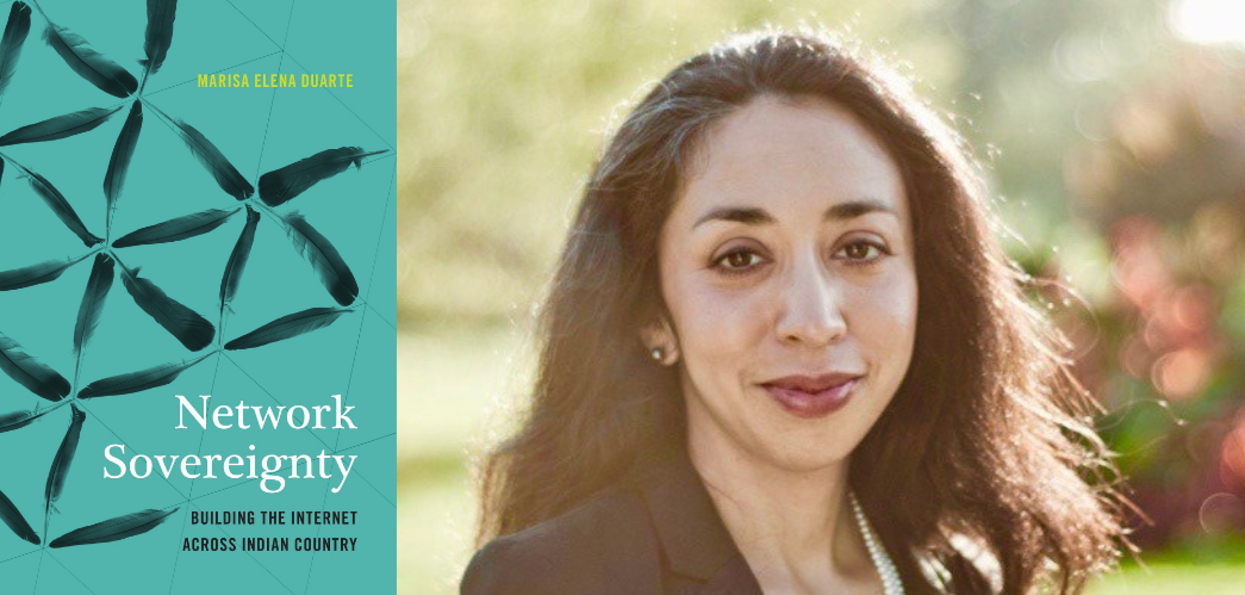Indigenous Cyber-relationality: Discerning the Limits and Potential for Connective Action

with Marisa Duarte
Assistant Professor, Arizona State University
A History and Theory of New Media Lecture as part of the Indigenous Technologies initiative, co-sponsored by the Center for Information Technology Research in the Interest of Society, the School of Information, American Cultures, and the Center for Race and Gender.
Register for Zoom link here!
Or stream on YouTube at: https://youtu.be/yZG6qL7tPrk
Video and Transcript Now Online
Click here to view the recorded seminar.
Click here to view the transcript of the video.
As Indigenous social movements increasingly rely on social networking sites (SNS) toward connective action, community groups also perceive the limitations of ICTs toward social change. For a range of reasons, grassroots activists, tribal elders, cultural knowledge-keepers, attorneys, IT experts, and law enforcement identify the vulnerabilities that radical uses of SNS introduce in already marginalized communities. Indigenizing SNS with regard for the colonial entanglements of social media platforms creates the grounds for discerning how Indigenous peoples carry protocols of respect, belonging, kinship, and shared purpose into digital spheres.
About Marisa Elena Duarte
Marisa Elena Duarte is a member of the Pascua Yaqui Tribe and is also related to the Mexican American families of the City of South Tucson. She is an assistant professor of justice and social inquiry through the School of Social Transformation at Arizona State University. She researches information, knowledge, and technology in the context of Indigeneity. Her 2017 book Network Sovereignty: Building the Internet across Indian Country investigates the relationship between sovereignty and the tribal command of Internet infrastructures. Her most recent work is on Indigenous feminist approaches to social media.
About Indigenous Technologies
Indigenous Technologies is a program of the Berkeley Center for New Media that engages questions of technology and new media in relation to global structures of indigeneity, settler colonialism and genocide in the 21st century. Our Indigenous Tech events and ongoing conversations with Indigenous scholars and communities aim to critically envision and reimagine what a more just and sustainable technological future can look like. We will highlight Indigenous engagements with robotics, computer science, telecommunications, artificial intelligence, virtual reality, social media, online activism, video games, and more.
Read a full description of the program and find more resources here.
About the History and Theory of New Media Lecture Series
The History and Theory of New Media Lecture Series brings to campus leading humanities scholars working on issues of media transition and technological emergence. The series promotes new, interdisciplinary approaches to questions about the uses, meanings, causes, and effects of rapid or dramatic shifts in techno-infrastructure, information management, and forms of mediated expression. Presented by the Berkeley Center for New Media, these events are free and open to the public. This year, our events will all take place online via Zoom.
Fall 2020 - Spring 2021 Series Theme: Indigenous Technology
2020
09/10 | 5 — 6:30 PM | A Conversation with the Sogorea Te' Land Trust
Corrina Gould, Lisjan Ohlone leader and co-founder of the Sogorea Te' Land Trust
Moderated by Marcelo Garzo Montalvo
Register here.
POSTPONED | Advancing Hollow Bone Narratives through Media Platform Connectedness
Ruth Hopkins, Dakota/Lakota Sioux writer
11/5 | 5 — 6:30 PM | World Re-Building: Aboriginal Territories in Cyberspace and the Initiative for Indigenous Futures
Skawennati, Artist & Co-Director of Aboriginal Territories in Cyberspace and Skins Workshops in Aboriginal Storytelling in Digital Media
Co-sponsored by the Department of Art Practice
Register here.
2021
2/3 | 5:00-6:30 PM | Indigenous Cyber-relationality: Discerning the Limits and Potential for Connective Action
Marisa Duarte, Assistant Professor, Arizona State University
Co-sponsored by the Center for Information Technology Research in the Interest of Society, the School of Information, and the Center for Race and Gender Studies.
Register here.
4/22 | 5:00-6:30 PM | Indigenous Games
Elizabeth LaPensée, Assistant Professor, Michigan State University
Co-sponsored by the Department of Art Practice
Register here.
Accessibility
BCNM events are free and open to the public. All of our events for the 2020-2021 academic year will be held on Zoom in English, in Pacific Standard Time (PST). We provide live-captioning in Zoom and offer a separate Streamtext window for live-captioning with options to customize text size and display. We strive to meet any additional access and accommodation needs. Please contact info.bcnm [at] berkeley.edu with requests or questions.
BCNM is proud to make conversations with leading scholars, artists, and technologists freely available to the public. Please help us continue this tradition by making a tax-deductible donation today. If you are in the position to support the program, we suggest $5 per event, or $100 a year.
